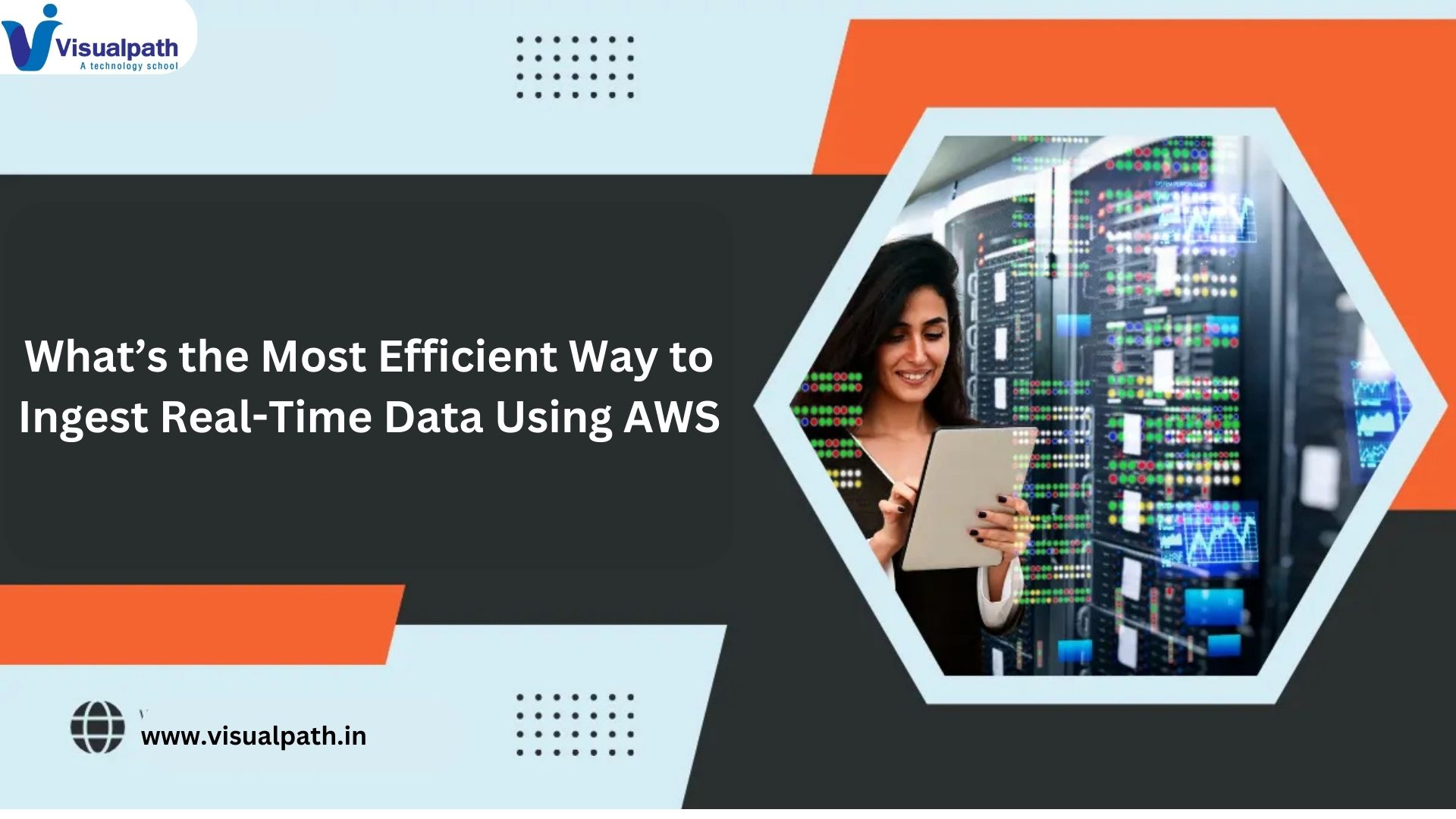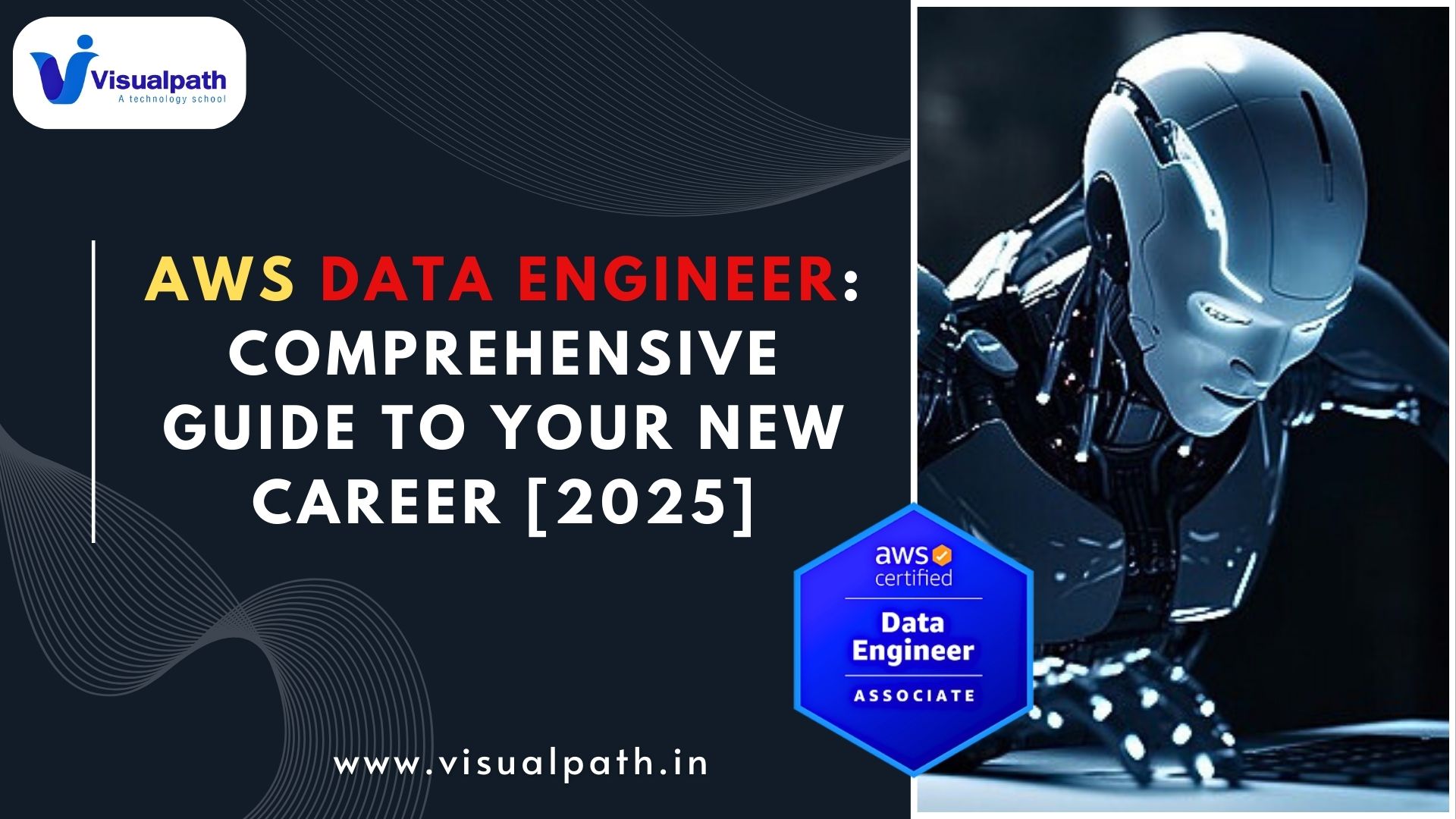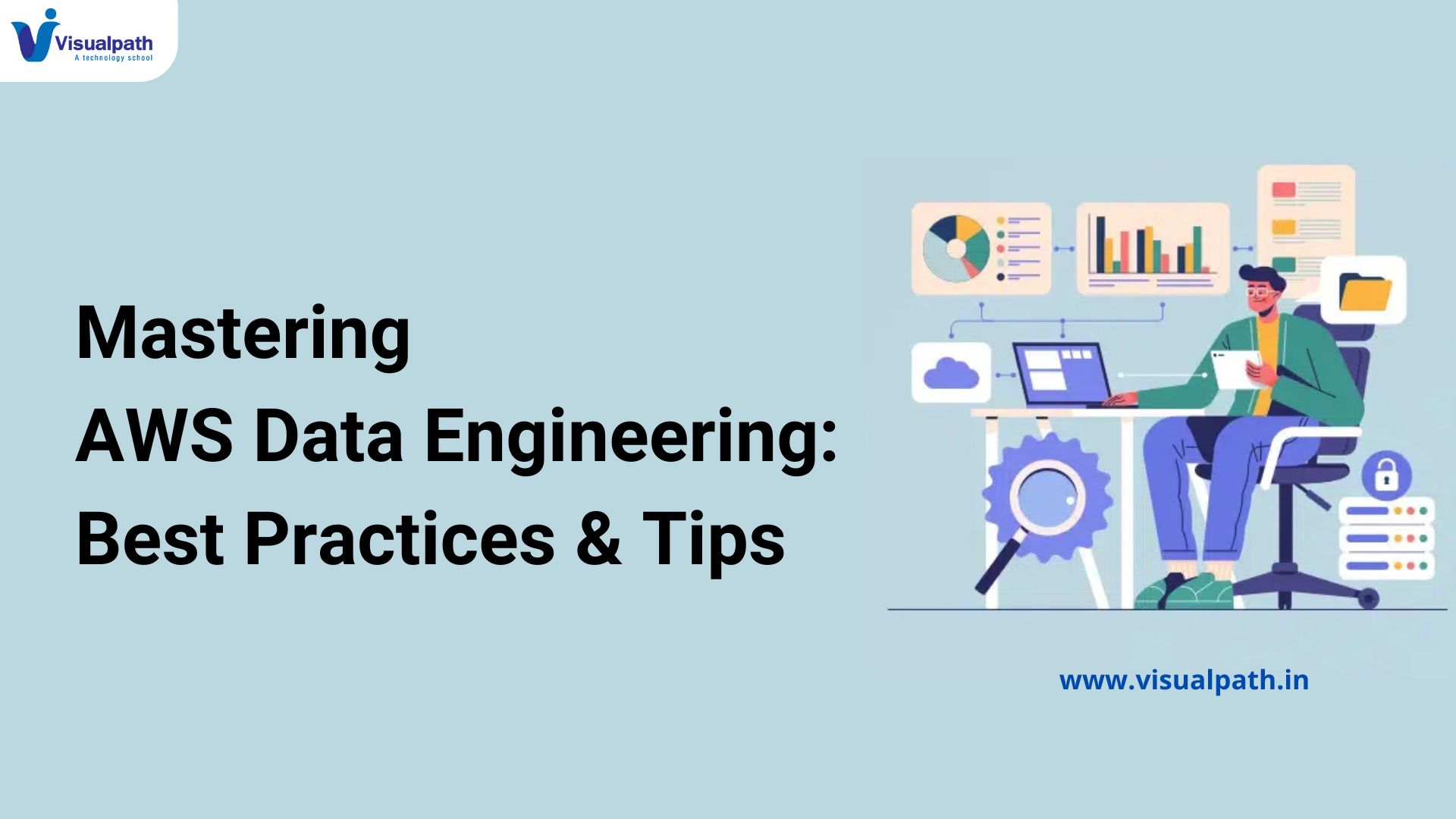AWS provides a suite of services designed to handle high-velocity, real-time data ingestion efficiently. In this article, we explore the best approaches and services AWS offers to build a scalable, real-time data ingestion pipeline.
Understanding Real-Time Data Ingestion
Real-time data ingestion involves capturing, processing, and storing data as it is generated, with minimal latency. This is essential for applications like fraud detection, IoT monitoring, live analytics, and real-time dashboards. AWS Data Engineering Course
Key Challenges in Real-Time Data Ingestion
- Scalability – Handling large volumes of streaming data without performance degradation.
- Latency – Ensuring minimal delay in data processing and ingestion.
- Data Durability – Preventing data loss and ensuring reliability.
- Cost Optimization – Managing costs while maintaining high throughput.
- Security – Protecting data in transit and at rest.
AWS Services for Real-Time Data Ingestion
1. Amazon Kinesis
- Kinesis Data Streams (KDS): A highly scalable service for ingesting real-time streaming data from various sources.
- Kinesis Data Firehose: A fully managed service that delivers streaming data to destinations like S3, Redshift, or OpenSearch Service.
- Kinesis Data Analytics: A service for processing and analyzing streaming data using SQL.
Use Case: Ideal for processing logs, telemetry data, clickstreams, and IoT data.
2. AWS Managed Kafka (Amazon MSK)
Amazon MSK provides a fully managed Apache Kafka service, allowing seamless data streaming and ingestion at scale.
Use Case: Suitable for applications requiring low-latency event streaming, message brokering, and high availability.
3. AWS IoT Core
For IoT applications, AWS IoT Core enables secure and scalable real-time ingestion of data from connected devices.
Use Case: Best for real-time telemetry, device status monitoring, and sensor data streaming.
4. Amazon S3 with Event Notifications
Amazon S3 can be used as a real-time ingestion target when paired with event notifications, triggering AWS Lambda, SNS, or SQS to process newly added data.
Use Case: Ideal for ingesting and processing batch data with near real-time updates.
5. AWS Lambda for Event-Driven Processing
AWS Lambda can process incoming data in real-time by responding to events from Kinesis, S3, DynamoDB Streams, and more. AWS Data Engineer certification
Use Case: Best for serverless event processing without managing infrastructure.
6. Amazon DynamoDB Streams
DynamoDB Streams captures real-time changes to a DynamoDB table and can integrate with AWS Lambda for further processing.
Use Case: Effective for real-time notifications, analytics, and microservices.
Building an Efficient AWS Real-Time Data Ingestion Pipeline
Step 1: Identify Data Sources and Requirements
- Determine the data sources (IoT devices, logs, web applications, etc.).
- Define latency requirements (milliseconds, seconds, or near real-time?).
- Understand data volume and processing needs.
Step 2: Choose the Right AWS Service
- For high-throughput, scalable ingestion → Amazon Kinesis or MSK.
- For IoT data ingestion → AWS IoT Core.
- For event-driven processing → Lambda with DynamoDB Streams or S3 Events.
Step 3: Implement Real-Time Processing and Transformation
- Use Kinesis Data Analytics or AWS Lambda to filter, transform, and analyze data.
- Store processed data in Amazon S3, Redshift, or OpenSearch Service for further analysis.
Step 4: Optimize for Performance and Cost
- Enable auto-scaling in Kinesis or MSK to handle traffic spikes.
- Use Kinesis Firehose to buffer and batch data before storing it in S3, reducing costs.
Implement data compression and partitioning strategies in storage. AWS Data Engineering online training
Step 5: Secure and Monitor the Pipeline
- Use AWS Identity and Access Management (IAM) for fine-grained access control.
- Monitor ingestion performance with Amazon CloudWatch and AWS X-Ray.
Best Practices for AWS Real-Time Data Ingestion
- Choose the Right Service: Select an AWS service that aligns with your data velocity and business needs.
- Use Serverless Architectures: Reduce operational overhead with Lambda and managed services like Kinesis Firehose.
- Enable Auto-Scaling: Ensure scalability by using Kinesis auto-scaling and Kafka partitioning.
- Minimize Costs: Optimize data batching, compression, and retention policies.
- Ensure Security and Compliance: Implement encryption, access controls, and AWS security best practices. AWS Data Engineer online course
Conclusion
AWS provides a comprehensive set of services to efficiently ingest real-time data for various use cases, from IoT applications to big data analytics. By leveraging Amazon Kinesis, AWS IoT Core, MSK, Lambda, and DynamoDB Streams, businesses can build scalable, low-latency, and cost-effective data pipelines. The key to success is choosing the right services, optimizing performance, and ensuring security to handle real-time data ingestion effectively.
Would you like more details on a specific AWS service or implementation example? Let me know!
Visualpath is Leading Best AWS Data Engineering training.Get an offering Data Engineering course in Hyderabad.With experienced,real-time trainers.And real-time projects to help students gain practical skills and interview skills.We are providing 24/7 Access to Recorded Sessions ,For more information,call on +91-7032290546
For more information About AWS Data Engineering training
Call/WhatsApp: +91-7032290546
Visit: https://www.visualpath.in/online-aws-data-engineering-course.html




